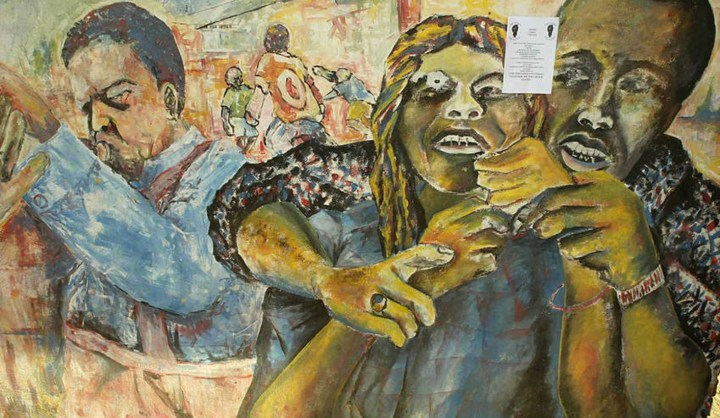South Africa
Op-Ed: Trauma relived, how the public health system fails victims of gender-based violence

When Statistics South Africa released the 2016 Demographic and Health Survey in May 2016, Karabo Mokoena’s charred remains had yet to be discovered and Mduduzi Manana had not yet assaulted two women on an average night out. So the statistics released that one in five South Africa women over the age of 18 has experience physical violence did not hit home as forcefully as they should have done. By VUYOKAZI GONYELA.
It may have escaped our attention that one in three women in the poorest households had experienced physical violence between June 27 and November 4, 2016 when the survey was conducted. But since then, there have been increased reports of gender-based violence (GBV) and a public outcry. Dialogues have been held, citizens have weighed in on social media, government departments have released all kinds of “plans”. Yet when it comes to accessing health services in the public sector, victims are treated callously and are made to feel shame.
As if the pain, trauma and humiliation of the violence is not enough, it has been reported that survivors of GBV who seek treatment within the public health system are often dismissed with nothing more than painkillers and without the requisite professional and compassionate treatment or counselling.
The failure of government departments to put in place proper prevention programmes and respond meaningfully to gender-based violence is too poor to be ignored, even more so within the public health sector (and often the private health sector as well).
The Department of Health as a public entity has a core responsibility to provide treatment to all survivors of GBV and rape. According to the National Health Act of 2003 the State, must provide-pregnant and lactating women and children below the age of six years, who are not members or beneficiaries of medical aid schemes, with free health services; all persons, except members of medical aid schemes and their dependants and persons receiving compensation for compensable occupational diseases, with free primary health care services; and women, subject to the Choice on Termination of Pregnancy Act, 1996 (Act No. 92 of 1996), free termination of pregnancy services.
It is with this in mind that the 2003 National Management Guidelines for Sexual Assault state that survivors of sexual assault and rape are encouraged to report to their nearest health facility within three days of the assault in order to access effective post exposure treatment and support. A further stipulation is that when health care providers treat GBV and rape cases, survivors are offered HIV counselling and testing within three days to ensure access to anti-retrovirals. Implementing this requirement however is challenging as some health facilities experience HIV testing kit stock-outages and do not provide proper facilities or the necessary counselling.
In a report published by the Treatment Action Campaign in July this year, more than 10 clinics in Limpopo province alone were said to be without HIV testing kits. It is important to note that HIV testing is a primary pre-requisite to dispensing medication and without test results, a person is not eligible for Post Exposure Prophylaxis.
If these hurdles to women accessing the proper services, especially in the case of GBV, are not adequately addressed women will continue to be secondary victims of an uncaring system. It is traumatic enough to experience sexual abuse and violence without the compounding trauma of being denied health services due to staff failure to adhere to policy requirements and resource shortages. Therefore the health department as service providers of such a key function should do its job and make sure adequate services are rolled out.
GBV survivors’ experiences of seeking health services under such trying circumstances will affect their decisions to access healthcare in the future. If the Department of Health does not prioritise fixing the broken and collapsed health systems, we will have a society that does not choose to seek health services and as was the days of Aids denialism, opt for alternative remedies and treatment or simply stay away.
In a society with such high rates of GBV and of HIV infection, the Health Department should be doing everything it can to ensure survivors of assault and sexual violence are given adequate treatment. We cannot fight HIV infection rates without addressing the rampant gender-based violence we face in this country and if survivors are treated poorly by the health care system, the battle to combat HIV and STIs and GBV will be futile.
Vuyokazi Gonyela is an NSP Review Advocacy Officer at SECTION27. She writes as part of the #FAILEDBYSYSTEMS campaign
Photo: A mural outside a college in Soweto depicts the violence against women. May 8 2003. EPA PHOTO KIM LUDBROOK


















 Become an Insider
Become an Insider